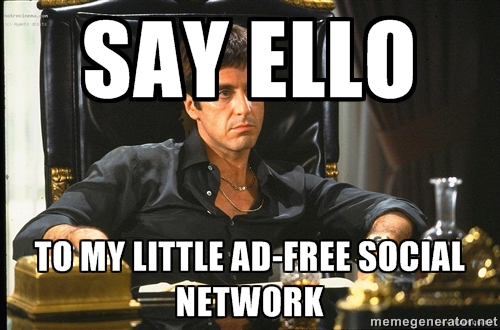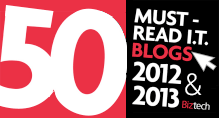 I awoke recently to an email with the news from the latest social media darling Ello, the startup that’s being called the Facebook killer, had converted to a Public Benefits Corporation . A Public Benefits Corporation (PBC) is new kind of for-profit entity that exists to produce a benefit for society as a whole. Regardless of whether or not you feel a social media site could actually be considered a public benefit, the move garnered a lot of media attention. With Facebook’s recent privacy mis-steps, many welcome Ello’s arrival on the scene as the anti-Facebook. However, there are repercussions for building your brand, as Ello is doing, based heavily on ethical superiority.
I awoke recently to an email with the news from the latest social media darling Ello, the startup that’s being called the Facebook killer, had converted to a Public Benefits Corporation . A Public Benefits Corporation (PBC) is new kind of for-profit entity that exists to produce a benefit for society as a whole. Regardless of whether or not you feel a social media site could actually be considered a public benefit, the move garnered a lot of media attention. With Facebook’s recent privacy mis-steps, many welcome Ello’s arrival on the scene as the anti-Facebook. However, there are repercussions for building your brand, as Ello is doing, based heavily on ethical superiority.
To begin with, Ello’s email communication is anything but humble. The email, laced with a tone of smug hubris stated, “With virtually everybody else relying on ads to make money, some members of the tech elite are finding it hard to imagine there is a better way.” The email went of further to explain that “the Ello PBC charter states in the strongest legal terms possible” that: Ello shall never make money from selling ads, user data, or if sold the new owners would have to comply by these terms as well. The email concludes with, “There is a better way.”
Ello is implying that advertisement based business models are, by nature, morally inferior to their yet to be implemented add-on freemium model. However, this is a very simplistic and limited perspective on competing business models. There is nothing inherently deviant about an ad-based model. You could just as easily abuse selling add-on services to end users – for example by making them pay at every turn, as you could with ad-based based models. To say that one is superior over another is ignorant. To claim that yours is better could prove fatal.
While, in principle, its sounds good that Ello is taking a moral stance against the “evils” of ad based revenue models, they are doing so by claiming a non-existent moral high ground that their model somehow rises above it all. This is a position that no business can live up to over time. The demographic that will have emotional loyalty to the Ello brand now based on that kind of sentiment will bring that same sort of criticality when evaluating Ello later. One slip up in the eyes of their demographic, however slight, and those same users who love Ello today will judge them with the exact moral harshness that they are currently riding high on. They will be crucified and loyalty in their service will quickly erode.
Ello isn’t the first company to endorse their brand from some sort of ethically superior position. A quick stroll down corporate memory lane shows the moral shrapnel of companies whose brand had a better than others sentiment attached to it. Google’s “don’t be evil” motto has been derided by many, including Eric Schmidt himself. Whole Foods has also come under attack for their glossing over the troubles of producing organic products.
While these brands and customers initially feel justified in their positions, they can quickly become mocked due to the untenable mix of perfect ethics and economic realities. The issue isn’t that they are attempting to operate ehically. Many companies do this and do it well. The issue is that they are developing their brand as somehow rising about others morally. They are betting too heavily upon their moral correctness.
The notion of a for profit business that is also a public benefit is a farce. For profit businesses are in business for just that, profit. Mistakes will be made, profits will drive decisions, and eventually your consumers will be disillusioned by your actions. Better to be humble than to shout to the world that you are better. Sure people will be drawn to you at first, but they will be the first to abandon you when you falter. No one is perfect and the backlash can be brutal.
Business and public benefit are at odds. From a short term perspective it may work. But as news departments of the major television networks, which were once considered a public beneft, found out over the last few decades that as the business climate changed, you need to turn a profit to survive. Business that succeed live by Darwinian rules of engagement. They Adapt or die. Business necessitates kill or be killed. This is the reason that the non-profit designation exists. It is near impossible to create a for profit organization and serve the public at the same time.
Before you get wound around the axle and suggest I am advocating for a laissez faire approach to business ethics, I’m not. There is plenty of room for business ethics, just not as part of building your brand. You should stake your brand on what you do rather than how your business ethics are beyond reproach. As it’s been said, pride goes before the fall; don’t let your brand take the road to ‘ell(o).

